In 1920, after the Versailles Treaty was agreed, Britain assumed responsibility for Palestine under a League of Nations Mandate. By 1940, over 100,000 Jews had moved to the country and the British Army’s main effort was aimed at controlling Arab militant groups opposed to large-scale Jewish immigration. The violence peaked during the Arab Revolt of 1936-39.
Events in Germany had had a major effect on the situation in Palestine. During WW2 the British restricted the numbers of Jews entering Palestine as a result of Nazi atrocities, as they wanted to keep in with the Egyptians and oil-rich Saudis. This provoked armed Jewish resistance, and brought together those who looked to Britain to help establish their national homeland (the Haganah) and those who supported the use of terror to drive the British out.
Today, as we listen to news of events in the Middle East, and absorb the daily digest of stories of acts of terror from around the world, we should perhaps not forget that at one time the Jewish settlers in the Palestine were responsible for the mass-bombing and shooting of British civilians and soldiers.
In one such incident, two sergeants were kidnapped and hanged . The soldiers who went to cut them down were injured by booby-traps left behind. In the King David Hotel bombing, over 90 people were killed. In all, 338 British lives were lost.
It was against this background of rising tensions and fear that Vince Leonard was sent to the Palestine as a National Serviceman in the Parachute Regiment.
TMT
Vince Leonard’s story
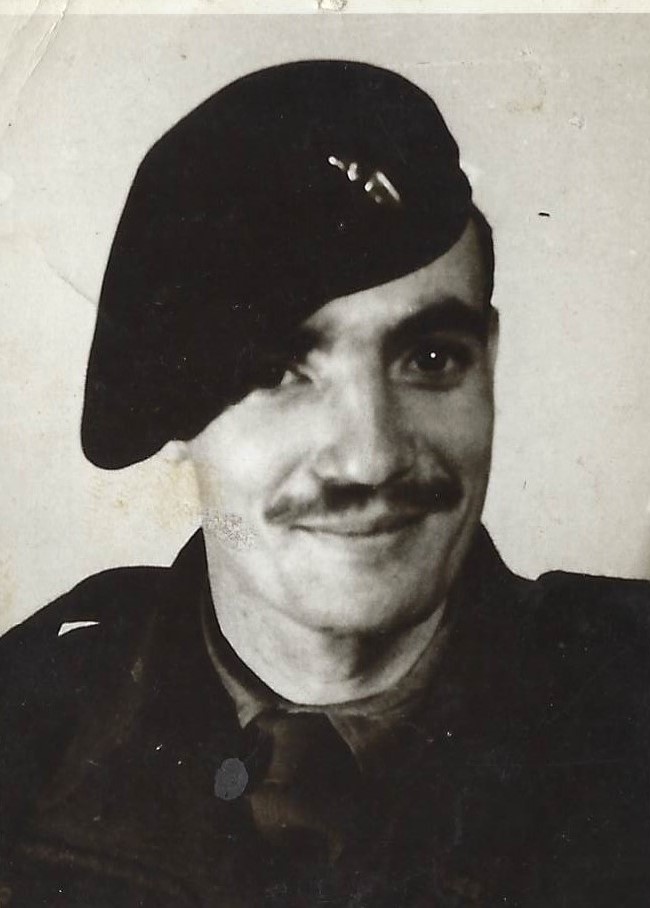
19144869 Pte. (later, Acting (Unpaid) Sergeant) Leonard V.J. 2nd.Para.
I was ‘called up’ for National Service in 1947 and volunteered for the Parachute Regiment. After six weeks of basic training at Aldershot I underwent a further ten weeks of Regimental Training. The less said about basic training the better! It was the usual continuous round of PT: inspections: rifle training; marching; shouting and bad language!
One small advantage I had in the Squad, was that I had been a runner for the Home Guard and my father, a WW1 veteran and Home Guard officer, had taught me to strip and clean firearms,so,when it came to the lesson on stripping and cleaning the Bren Gun I was called upon to demonstrate the correct method!
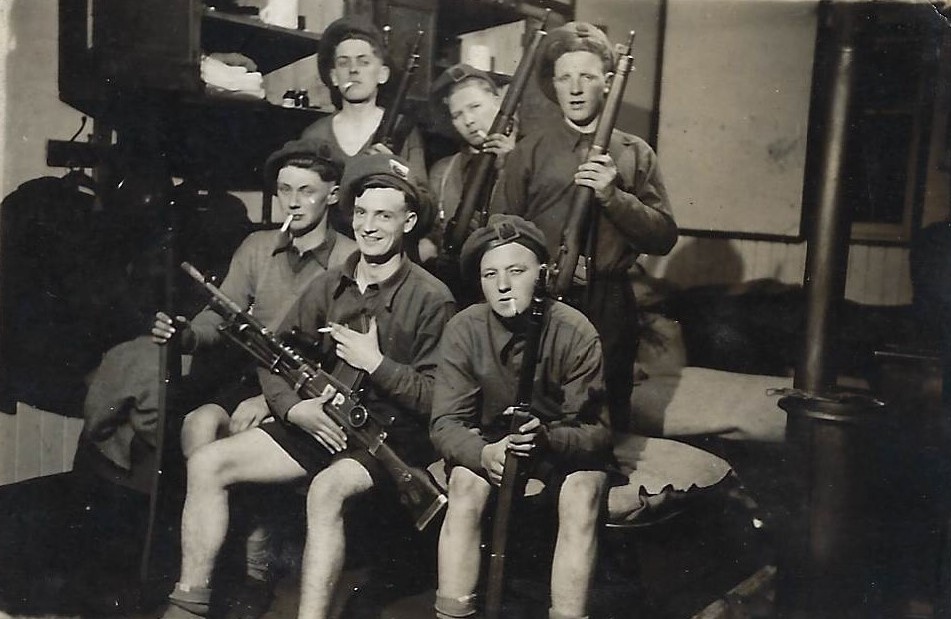
.
Parachute Training.
Parachute Training was, I remember, a much more relaxing experience than the previous sixteen weeks. We spent four weeks at the ‘jump school’ at Upper Heyford, Oxfordshire. The jump training was from Dakotas and, happily, completed without incident or injury with the exception of one jump when, in a wind higher than the usual 18 miles per hour, I was blown towards the Oxford Road and my boots scraped the side of a bus before landing at the side of the road! I’m not sure what the local commuters thought, however, I suspect that mine was a far from isolated incident. This was, of course, in the days when Health and Safety was a laughable concept, nevertheless it did not hold back my progress and I successfully completed the training and proudly received my wings.
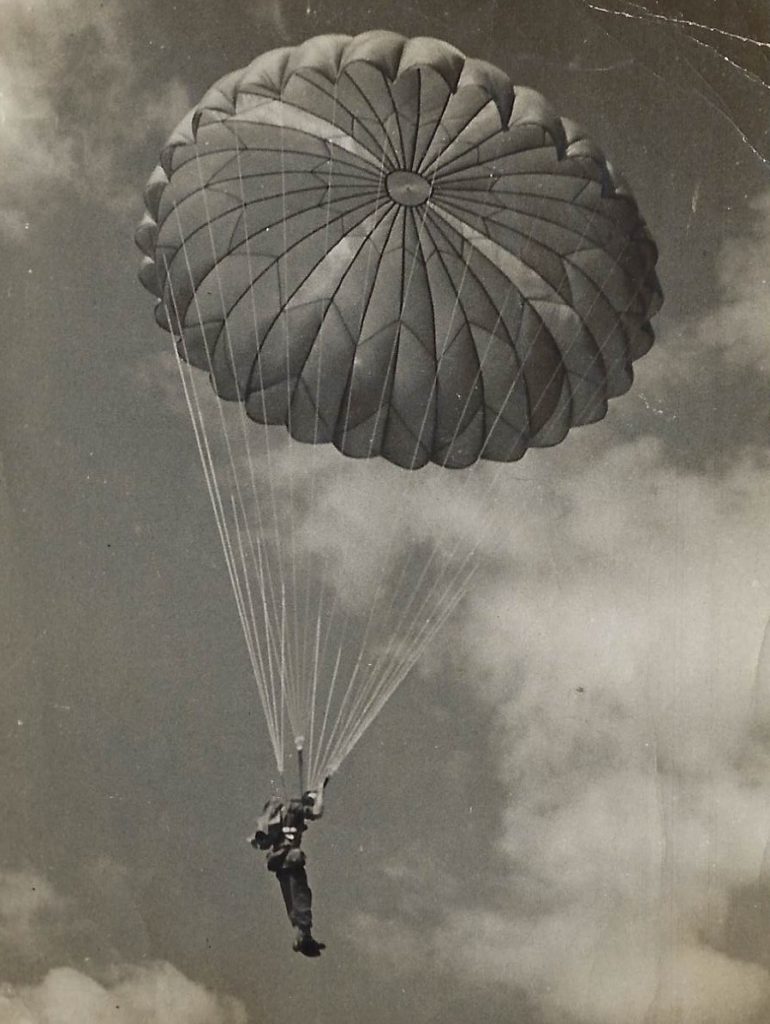
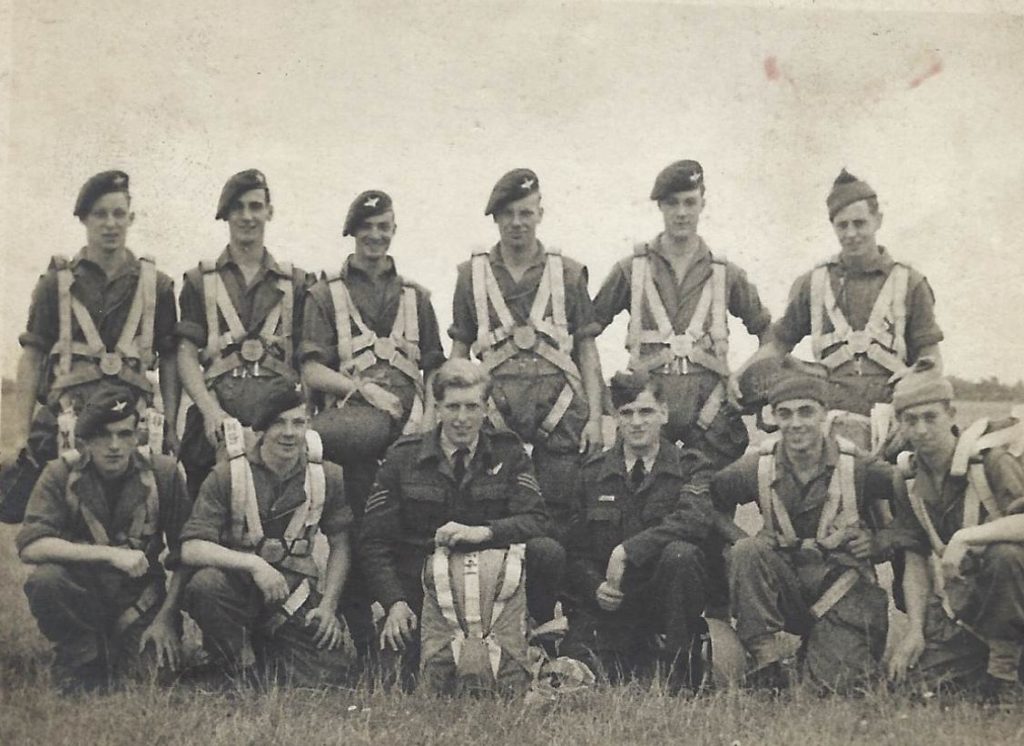
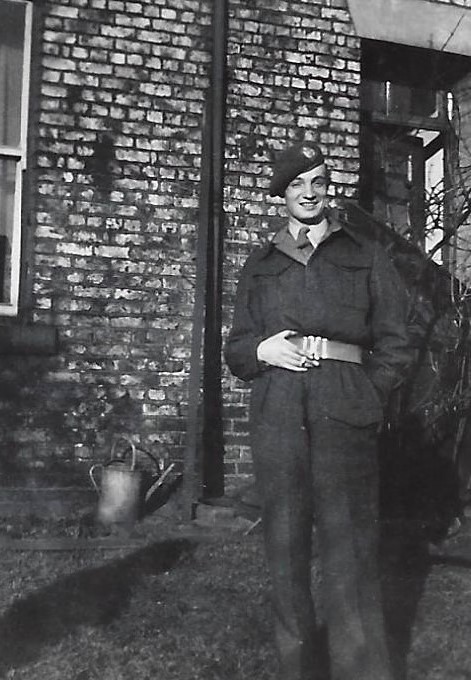
After completing my training I was given a fortnight’s leave, which I spent at my parents’ house in Gateshead. This turned out to be post-training leave and, unbeknown to me, embarkation leave rolled into one. I returned to Aldershot and during an inspection by one of the Training Sergeants and the Duty Officer was told that, together with a handful of other Paras, I had been selected for a draft going to Palestine. The military policy of ‘need to know’ was obviously in full swing, and this was the only briefing we received before boarding the troop ship.
The Journey Out.
The draft going to Palestine comprised of a full Company plus ten Para’s of the 8th and 9th Battalions. Most were National Servicemen (like myself) with a few Regulars and some ex Indian Army types, (one of which was the most tattooed man I ever saw. His ‘decorations’ included a full fox hunt on his back with the fox’s brush protruding from his backside. He also had ‘yes please’ and ‘thank you’ on the palms of his hands ready for pay parades!).
We sailed from Liverpool on the troop ship ‘Empress Rival’, embarking directly in front of the old Liver Buildings.
Although I had never sailed before, this being my first journey outside the UK, the voyage which took ten weeks, was relatively uneventful. However, it was later revealed to us that troop transports were under threat of attack and the ‘Empress Rival’ had been damaged by a time bomb on-route from Haifa to Port Said in April that year.
The highlight of the journey was stopping at Malta and anchoring in the Grand Harbour.
The Island had been made famous by the wartime siege and the award of the George Cross medal but it had suffered enough and we were not allowed to disembark.
We sailed from Malta to Port Said, our port of disembarkation, where we arrived late at night to be greeted by a very large illuminated advertisement for ‘Jonny Walker’ whisky, a great sight, not just of the promise of a plentiful supply of whisky, but because the UK had not fully recovered from the wartime ‘black out’ and these bright lights were a real novelty.
From Port Said we travelled across Sinai by train to Haifa and Peninsular Barracks which was to be our home for our stay in Palestine. Our accommodation at Peninsula Barracks was the usual Army wooden barrack-hut and life quickly fell into the well-known military routine.
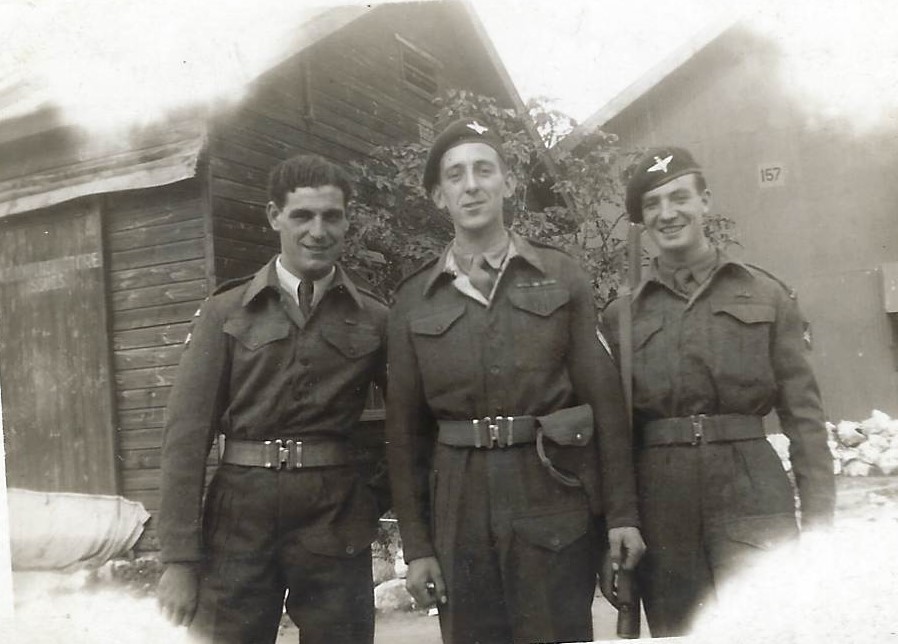
In Part 2 Vince describes daily life in the Palestine, dealing with the influx of new settlers from a war-ravaged Europe.
This account was written by Vince Leonard and supplied by Roger Brown. Vince retains full copyright to the text and images.
For more information on this topic, you might wish to go to this link at the National Army Museum: https://www.nam.ac.uk/explore/conflict-Palestine

Comments on A Para in Palestine